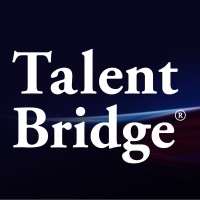

TalentBridge
AI/ML Lead
⭐ - Featured Role | Apply direct with Data Freelance Hub
This role is for an AI/ML Lead with a contract length of "unknown" and a pay rate of "$X/hour." The position requires 8+ years of software engineering or applied ML experience, strong Python skills, and expertise in RAG systems, multi-modal models, and knowledge graphs. Remote work is possible.
🌎 - Country
United States
💱 - Currency
$ USD
-
💰 - Day rate
Unknown
-
🗓️ - Date
November 19, 2025
🕒 - Duration
Unknown
-
🏝️ - Location
Unknown
-
📄 - Contract
Unknown
-
🔒 - Security
Unknown
-
📍 - Location detailed
United States
-
🧠 - Skills detailed
#Databases #Knowledge Graph #NLP (Natural Language Processing) #Monitoring #ML Ops (Machine Learning Operations) #Indexing #Observability #Scala #Data Processing #AI (Artificial Intelligence) #ML (Machine Learning) #Datasets #RDF (Resource Description Framework) #Deployment #Neo4J #Python #Model Deployment
Role description
Overview
We are seeking a highly skilled AI Lead to design, build, and optimize advanced AI systems that leverage Retrieval-Augmented Generation (RAG), multi-modal models, and agentic architectures. The ideal candidate will have deep experience working with large-scale knowledge bases, modern vector search technologies, and hands-on development of production-grade AI features. This role requires a strong blend of engineering, research awareness, and the ability to drive innovation end-to-end.
Key Responsibilities
• Architect, build, and optimize complex RAG pipelines, supporting multi-domain knowledge bases, high-volume datasets (TB-scale), and advanced chunking/indexing strategies.
• Lead and execute multi-modal AI experiments, including image, diagram, and text-based use cases.
• Develop and maintain knowledge graph–driven solutions to enhance retrieval, reasoning, and context management.
• Design and build agentic AI systems that go beyond conversational interactions to enable task-oriented, autonomous, and tool-augmented agents.
• Evaluate and recommend alternative AI/LLM approaches, bringing strong industry awareness of emerging techniques, model capabilities, and best practices.
• Define and implement evaluation frameworks (Evals) to measure model performance, quality, safety, and reliability.
• Implement observability and monitoring for AI pipelines, including telemetry, tracing, and error detection for LLM-driven workflows.
• Work hands-on with OpenAI technologies, APIs, and model ecosystem to build advanced features.
• Apply prompt engineering and LLM design patterns to build robust end-to-end AI solutions.
• Develop high-quality software using Python, including data processing, model orchestration, and integration layers.
• Leverage and optimize vector databases / vector stores for retrieval, semantic search, and scalable indexing.
Qualifications
• 8+ years of software engineering or applied ML experience.
• Proven track record implementing production RAG systems at scale.
• Strong understanding of embeddings, vector similarity search, chunking heuristics, and retrieval performance optimization.
• Hands-on experience with multi-modal models (e.g., VLMs, OCR, vision-language reasoning).
• Experience working with knowledge graphs (Neo4j, RDF, graph embeddings, or similar).
• Prior work building agentic/LLM-driven systems (tool use, planning, function calling, agents).
• Strong Python engineering skills, including modern tooling and best practices.
• Familiarity with AI observability frameworks, experiment tracking, and evaluation tooling.
• Experience with OpenAI APIs, or comparable LLM platforms.
• Ability to stay current with rapidly evolving AI research and translate advancements into practical solutions.
Nice to Have
• Experience with distributed systems and high-volume data processing.
• Prior experience in ML Ops, GPU orchestration, or model deployment pipelines.
• Background in search systems, IR, or NLP.
Overview
We are seeking a highly skilled AI Lead to design, build, and optimize advanced AI systems that leverage Retrieval-Augmented Generation (RAG), multi-modal models, and agentic architectures. The ideal candidate will have deep experience working with large-scale knowledge bases, modern vector search technologies, and hands-on development of production-grade AI features. This role requires a strong blend of engineering, research awareness, and the ability to drive innovation end-to-end.
Key Responsibilities
• Architect, build, and optimize complex RAG pipelines, supporting multi-domain knowledge bases, high-volume datasets (TB-scale), and advanced chunking/indexing strategies.
• Lead and execute multi-modal AI experiments, including image, diagram, and text-based use cases.
• Develop and maintain knowledge graph–driven solutions to enhance retrieval, reasoning, and context management.
• Design and build agentic AI systems that go beyond conversational interactions to enable task-oriented, autonomous, and tool-augmented agents.
• Evaluate and recommend alternative AI/LLM approaches, bringing strong industry awareness of emerging techniques, model capabilities, and best practices.
• Define and implement evaluation frameworks (Evals) to measure model performance, quality, safety, and reliability.
• Implement observability and monitoring for AI pipelines, including telemetry, tracing, and error detection for LLM-driven workflows.
• Work hands-on with OpenAI technologies, APIs, and model ecosystem to build advanced features.
• Apply prompt engineering and LLM design patterns to build robust end-to-end AI solutions.
• Develop high-quality software using Python, including data processing, model orchestration, and integration layers.
• Leverage and optimize vector databases / vector stores for retrieval, semantic search, and scalable indexing.
Qualifications
• 8+ years of software engineering or applied ML experience.
• Proven track record implementing production RAG systems at scale.
• Strong understanding of embeddings, vector similarity search, chunking heuristics, and retrieval performance optimization.
• Hands-on experience with multi-modal models (e.g., VLMs, OCR, vision-language reasoning).
• Experience working with knowledge graphs (Neo4j, RDF, graph embeddings, or similar).
• Prior work building agentic/LLM-driven systems (tool use, planning, function calling, agents).
• Strong Python engineering skills, including modern tooling and best practices.
• Familiarity with AI observability frameworks, experiment tracking, and evaluation tooling.
• Experience with OpenAI APIs, or comparable LLM platforms.
• Ability to stay current with rapidly evolving AI research and translate advancements into practical solutions.
Nice to Have
• Experience with distributed systems and high-volume data processing.
• Prior experience in ML Ops, GPU orchestration, or model deployment pipelines.
• Background in search systems, IR, or NLP.



